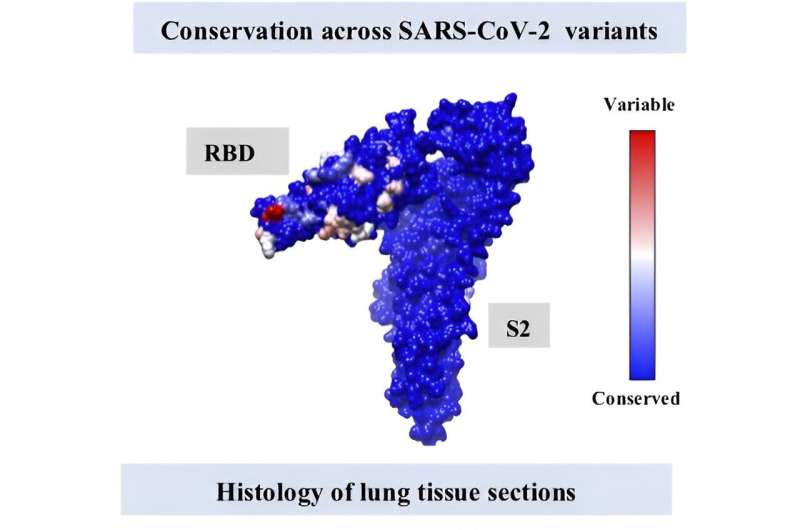This article has been reviewed according to Science X's editorial process and policies. Editors have highlighted the following attributes while ensuring the content's credibility:
fact-checked
peer-reviewed publication
trusted source
proofread
Indian researchers design thermostable, broadly protective vaccine candidate for current and future SARS-CoV-2 variants

Since the beginning of the COVID-19 pandemic, Raghavan Varadarajan, Professor at the Molecular Biophysics Unit (MBU), Indian Institute of Science (IISc), and collaborators have been working on developing a heat-tolerant vaccine that can offer protection against different strains of SARS-CoV-2—both current and future variants.
In a study published in npj Vaccines, they report the design of a synthetic antigen that can be manufactured as a potential COVID-19 vaccine candidate. They show that their vaccine candidate is effective against all current strains of SARS-CoV-2 and can be quickly adapted for future variants as well.
While current vaccines are proven to be effective against most SARS-CoV-2 strains, their efficacy has declined due to the virus's rapid mutation.
After analyzing various proteins found in the virus, the researchers selected two parts of SARS-CoV-2's spike protein—the S2 subunit and the receptor binding domain (RBD)—for designing their vaccine candidate. The S2 subunit is highly conserved—it mutates much less than the S1 subunit, which is the target of most current vaccines. Scientists have also known that the RBD can provoke a strong immune response in the host. Therefore, the team created a hybrid protein called RS2 by combining these two components.
The researchers used mammalian cell lines to study the expression of the hybrid protein. "The protein showed very high levels of expression, and I [initially] thought that the experiment was not working properly," says Nidhi Mittal, Ph.D. student at MBU and first author of the study. This means, she explains, it can potentially be produced in large quantities.
The team then tested the effects of the protein in both mice and hamster models. They found that the hybrid protein triggered a strong immune response and provided better protection when compared to vaccines containing the whole spike protein.
The RS2 antigen can also be stored at room temperature for a month without the need for cold storage, unlike many vaccines on the market which require mandatory cold storage. This would make the distribution and storage of these vaccine candidates much more economical.
Varadarajan explains that his team began working on the vaccine even before the pandemic became widespread in India. Since 2000, Varadarajan's team has been working on designing several viral vaccines, including those against AIDS and influenza. They have leveraged this expertise to design their current RS2-based COVID-19 vaccine candidate in collaboration with the startup Mynvax, that was, until recently, incubated at IISc.
According to the team, the vaccine candidate can be tailored to incorporate the RBD region of any new variant of SARS-CoV-2 that might emerge. Its high levels of expression and stability at room temperature can greatly reduce production and distribution costs, making it well-suited for combating COVID-19.
More information: Nidhi Mittal et al, Enhanced protective efficacy of a thermostable RBD-S2 vaccine formulation against SARS-CoV-2 and its variants, npj Vaccines (2023). DOI: 10.1038/s41541-023-00755-2


















